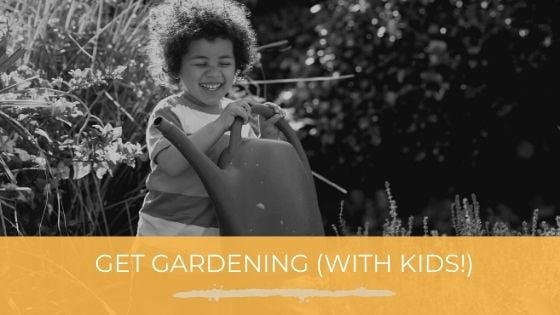Adoption is a wonderful way to welcome a child into a family, rich with a unique set of joys and challenges.
Though not initiated by pregnancy, labor and birth, the start of the parent-child relationship is a birth of sorts — the birth of a new life together.
Toddler adoption is an entirely different situation — also filled with specific triumphs and struggles — particularly because the child has lived a significant period of time without the parents.
Though no child comes into the world as a completely blank slate, toddlers have racked up their share of experiences.
And that can sometimes include trauma, nutri- tional deficiency or neglect, all in addition to everything both exciting and frustrating inherent to the age.
For some families, adopting a toddler is an intuitive choice.
Maybe the family began by fostering an older infant or toddler, maybe the family felt pulled to care for older children in need of a forever family.
For others, toddler adoption is situational, particularly in cases of international adoption. By the time all the paperwork goes through, the travel plans are made and the waiting period in the country of origin takes place, the child is perhaps much older than when the process began.
Lori and Mike Treiber’s kids — Levi, 15, Bodie, 11 and Micah, 8 — were adopted from the Philippines when they were toddlers. Levi is exceptionally personable, wise beyond his years and a natural big brother. Bodie is bright and charismatic, and loves basketball and reading. Micah is sweet, loyal, smiley, a quick learner and enjoys being on the swim team with his brothers.
Meet the Treibers
Lori and Mike Treiber of St. Paul brought their family to completion by adopting three boys, all at toddler age — Levi, now 15, Bodie, 11 and Micah, 8.
The choice to commence parenting in the toddler years was part circumstance, part intention and part faith.
Many adoptive families — whether religiously affiliated or not — will tell you there’s a special sort of spirituality at play in adoption. It’s a feeling that a child is 100 percent your child, coming at exactly the right time, in the right way.
Lori Treiber had actually worked for many years in early childhood care and development and had even worked at the children’s home from which her boys came.
Toddlers, in fact, were her area of expertise, but trust and faith played a heavy role in her family’s expansion as well. She described a feeling of “knowing” during the process, particularly when she saw her sons’ photos for the first time.
“We felt led to adopt from the Philippines, so that was our first priority,” she said. “At the time of our adoption process, the youngest Filipino children were most likely to be toddlers by the time all the legal steps were completed. But I believe that God’s timing is perfect: When they come home is when they are supposed to come home. I had to keep reminding myself that during the waiting process.”
That waiting can be loosely likened to pregnancy in that it’s an important part of the emotional development of the family. By the time your child comes, either via birth or adoption, you’ve had time to do quite a bit of mental preparation.
Bodie Treiber, like his brothers, was adopted when he was a toddler.
Getting ready
Preparation, research and awareness are even more important to a family welcoming home a toddler.
Adoption counselors, agencies and experts all recommend learning as much as possible about a child’s life in advance of him or her joining the family.
At surface level, this can help the family honor some of the child’s routines, habits and favorite foods. On a deeper level, it can help the parents have compassion when the child acts out, and can help them sort through whether a behavior is a developmental issue, the result of trauma or just a kid being a kid.
“Our toddlers had experienced some of their life without us and we may not know all they have seen or experienced,” Lori Treiber said. “You need to think through the behaviors extra hard, especially so-called negative behaviors. Your adopted toddler will probably experience a loss and grieve, but will most likely not know what to do with the emotions. It can come out in many ways, even hitting or biting the parents.”
Finding the right way to handle things for the Treibers meant understanding the behavior while also expressing — more than once — that it would not be tolerated.
In many ways, it all sounds like typical toddler parenting — and it is. However, biting, hitting and food strikes in an adopted child might have deeper roots that need to be addressed.
Trusting your gut
There are many quirks and “rules” parents of adopted toddlers must manage — things that the outside world doesn’t always understand.
These might include upholding and honoring regressive behavior and treating a 2 or 3-year-old child like an infant — rocking, bottle-feeding and being carried, for example.
Adoption experts say this can be important to the attachment process — a sort of reclaiming of the time in which the child was not with his or her forever family. It can also be essential in the healing of a child who received very little nurturing or touch throughout infancy.
One toddler-adoption “rule” the Treibers found to be the hardest — in terms of social scrutiny — was that, at first, only the parents are allowed to hold their child.
“Most people think you are crazy, controlling and over-the-top protective,” Lori Treiber said. “They are personally offended when you won’t let them hold your new child.”
For many children, touch has been minimal and attachment to their parents needs to happen first.
It’s important for the new parent to be knowledgeable about practices like these, which may seem counterintuitive, while at the same time trusting their own parenting instincts.
Bodie, Levi and Micah Treiber of St. Paul play together in their earlier years. Lori Treiber said she thinks of her kids like this: Levi: sun; Bodie: stars; and Micah: moon.
Bedtime battles, picky eating
Of “normal” human functions such as sleeping, eating and elimination, the family of adoptive toddler will face the same challenges that all parents of toddlers face, and likely a few more.
For example, a toddler might be used to sleeping on the floor, or even outdoors. A child might adapt to bedtime routines in the new house, but then become afraid on a family trip.
Dr. Katja Rowell — a St. Paul M.D. known as The Feeding Doctor — wrote a book specifically addressing the nutritional struggles faced by adoptive families, Love Me, Feed Me: The Adoptive Parent’s Guide to Ending the Worry About Weight, Picky Eating and Power Struggles.
“Soon after I started consulting, adoptive parents were reaching out for help with feeding and growth struggles,” said Rowell, a family doctor and childhood feeding specialist. “They shared that most resources didn’t address the unique issues of attachment and trauma.”
She said it’s important for parents experiencing both sleep and feeding struggles to be patient, compassionate and to seek support from other families.
“Read what you can in advance,” she said. “Be prepared for a toddler who has some delays and feed them what they are able to handle.”
Rowell said parents might feed their adopted toddlers more like an older infants with finger foods.
“Let them explore and make a mess,” she said. “If they enjoy a bottle, don’t go cold turkey. And never force a child to eat. Withholding food from a child with a food preoccupation is also likely to backfire.”
Mourning the early years
Much like the children themselves, parents must also go through a grieving of sorts when they adopt a toddler. They’ve missed the baby years. The parent should allow the feelings to happen and should seek help if they feel “stuck” in feelings of grief.
“There is a natural progression from filling your newborn’s needs to making sure they are safe while crawling around to eventually running after them as they explore their world on two feet.” Lori Treiber said: “As a new dad, Mike did not get the luxury of being eased into fatherhood.”
She had worked for many years in early childhood care, which gave her not just exposure to toddlers’ idiosyncrasies, but also practice in working with them.
“Mike’s kids came to him with all the seemingly irrational toddler emotions and behaviors,” she said: “Plus running!”
Jen Wittes is a freelance writer and mother of two who lives in St. Paul. Learn more about her work at jenwittes.com.
Read more
Adoption.org Adoption Agency – adoption.org
Millions of Miles – millionsofmiles.com
SPOON Foundation – adoptionnutrition.org
The Feeding Doctor – thefeedingdoctor.com
















